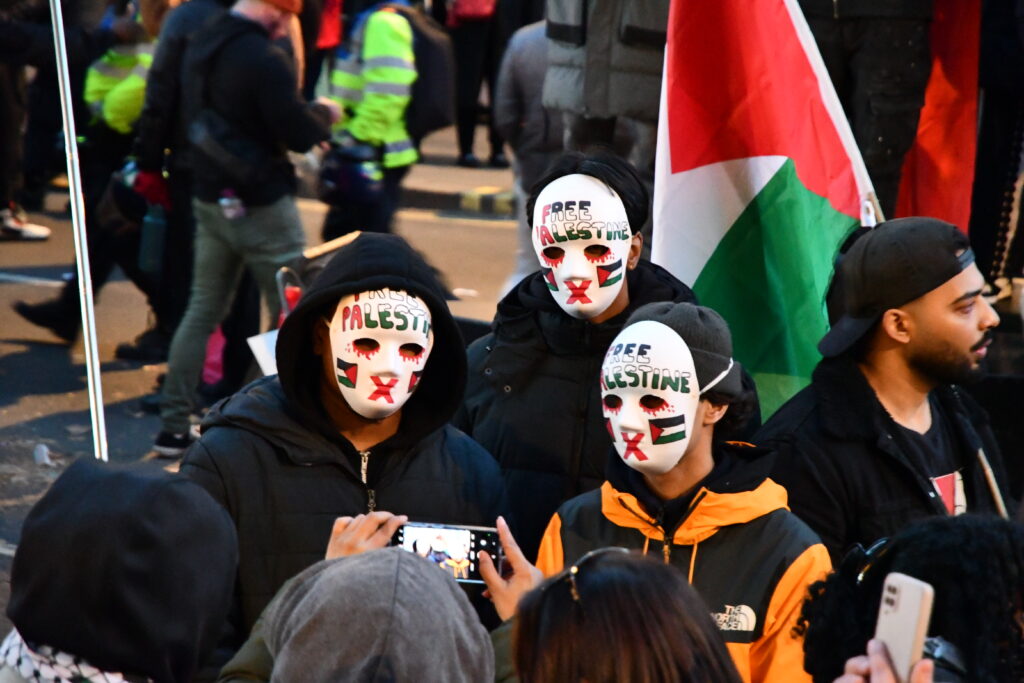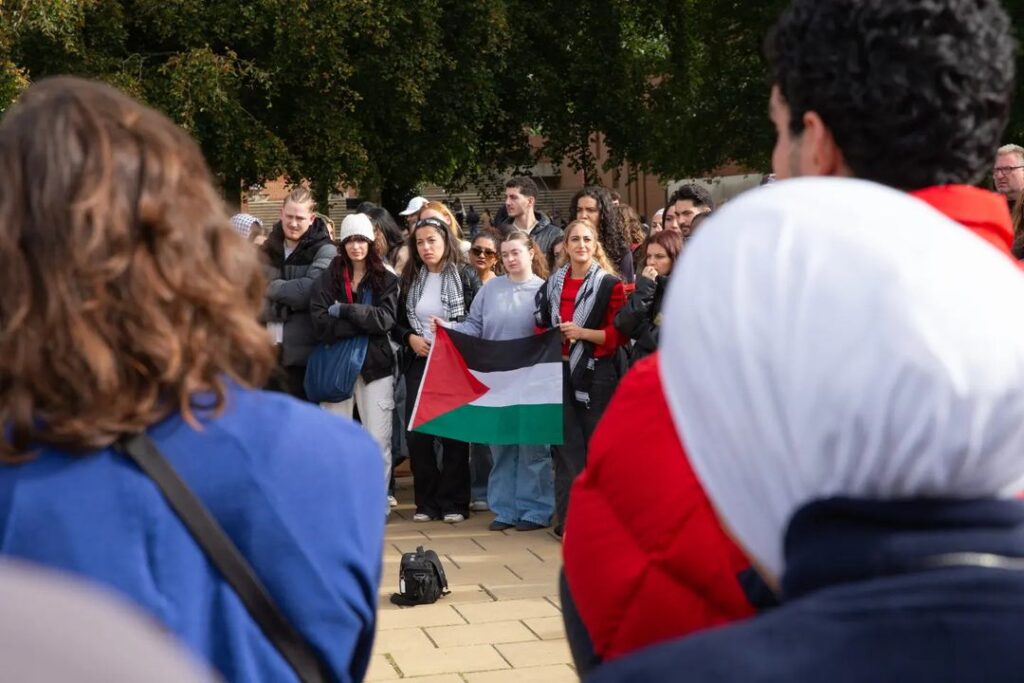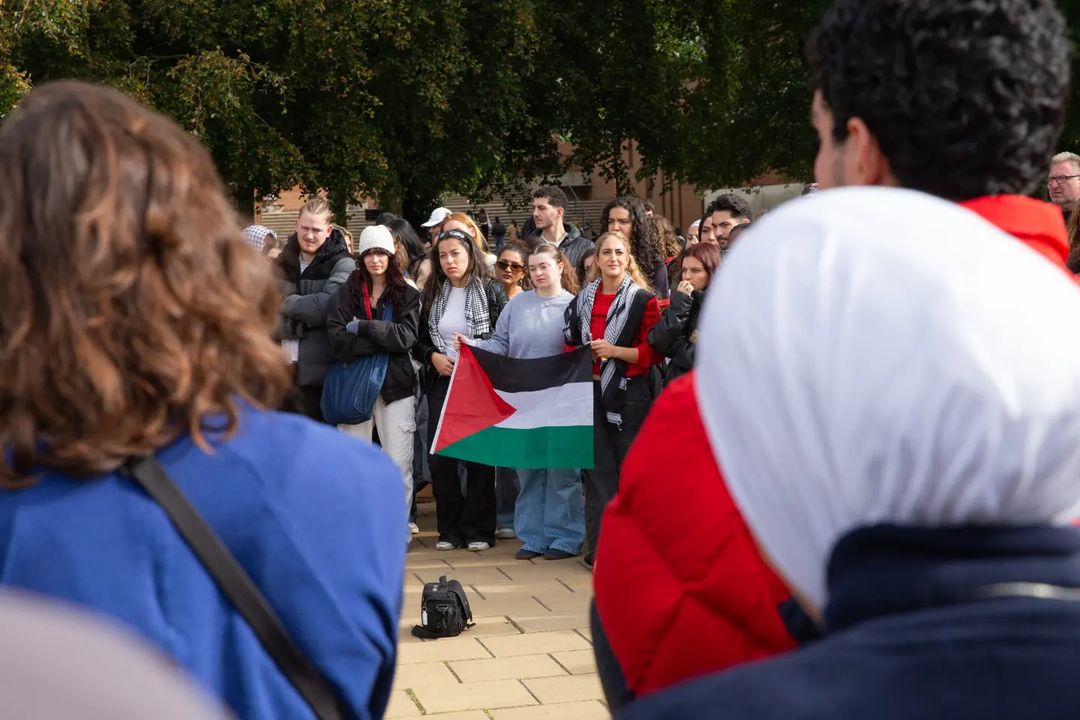As the ongoing Israel-Hamas war has been covered extensively by local and international news outlets, posts on social-media platforms about the conflict are often dismissed as “disinformation”; ignored on the basis that they’re “too emotive”; or scoffed at because they come in between snaps of users enjoying dinner. This is ironic, considering that the language of mainstream news articles mirrors the disingenuous, performative posts that they frequently criticise. The Guardian tore apart Gal Gadot and co’s 2020 cover of“Imagine”, criticising the lack of self-awareness in recruiting multimillionaires to sing about “no possessions” while unemployment rates soared. Yet, looking at today’s front pages, stories about Palestine are sharing the stage with headlines such as “Everton Lose 10 Points over Finance Rules Dinner”(The Sun, 18 November). The severity of this humanitarian crisis is being undermined by traditional media and it’s unsurprising that each post on social media with a shred of empathy is regarded as “controversial”.

When they manage to take a break from writing about celebs going dating, mainstream media outlets seem to conflate the tragedy of the Gaza conflict with natural disasters. Both UN News and The Washington Post referred to the war as an “unfolding catastrophe”, and The Week reported the “calamity” caused by Hamas. These phrases are commonly used to describe freak accidents or disasters, but can any aspect of this war truly be considered accidental? Traditional news stories are laced with propaganda, condemning Hamas as if the violence in Gaza only began on the 7 October . In reality, this conflict dates back to the early 20th century. Although disinformation is certainly present on social media, at least users are not claiming to be an unbiased source, while simultaneously omitting pivotal parts of the story.
The media cannot walk on eggshells while children are walking over dead bodies
It is not uncommon for news sources to make questionable language choices when attempting to discuss conflict. As a Greek Cypriot, I was perturbed when reading an archived story from The Observer discussing the 1974 invasion of Cyprus. “The Greek Cypriots could make life unbearable for the Turkish Army – just as they did when the British were there,” is a prime example of both the conflation between civilians and the military, and the egotism of the British media. This is echoed in today’s conflict; though the war was exacerbated by both the actions of Israel’s Prime Minister, Benjamin Netanyahu, and Hamas’s deadly attacks, mainstream media appears to only focus on the latter. The emphasis on the deaths of individual Israeli civilians is unsurprising, considering that many have British or American passports. However, the media outcry for Palestinian nationals is minimal, which is particularly concerning when taking into account the marked difference in the number of deaths between the two states. According to the Gaza Health Ministry, as of 15 November, more than 1,200 Israelis and over 11,240 Palestinans have been killed since 7 October.

While it is understandable for Jewish people to compare the appalling 7 October attacks to the European pogroms of the 20th century, should the overall Palestinian cause of self-determination even be compared to the motivations of Nazis in World War Two? The answer should be an unequivocal no. Hamas and Palestine should not be used interchangeably; the classification of the war as “Israel vs Hamas” undermines the fact that the Israeli government is carrying out a collective punishment against an entire population based on the actions of a militant minority. Failing to distinguish between the two enables news sources to deem Israel’s actions (supported by the UK’s government) as self-defence, despite the ongoing murdering of innocent Palestinians. Perhaps the Western guilt for allowing the Holocaust in Europe has caused the media to tread carefully. Clear distinctions between anti-Zionism (a colonial ideology), and antisemitism need to be made; the media cannot walk on eggshells while children in the Middle East are walking over dead bodies. How much worse must things get before a ceasefire is called for?

